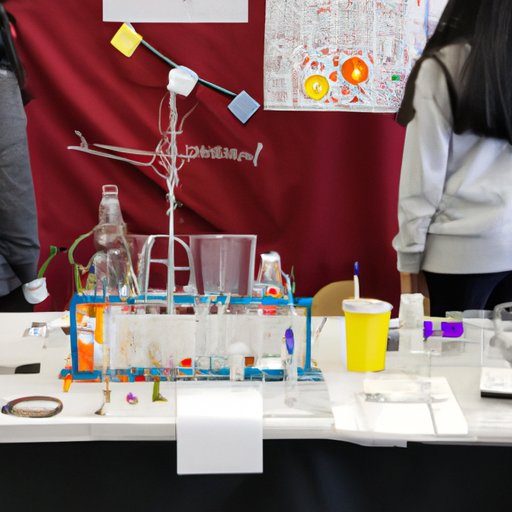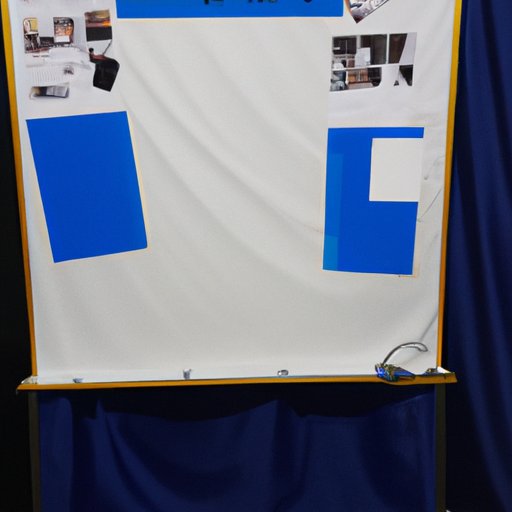Introduction
A science fair is a competition where students present their original projects or experiments that explore a scientific concept or question. These events give students the opportunity to demonstrate their knowledge of science and to apply what they’ve learned in the classroom in real-world scenarios. By participating in a science fair, students can hone their problem-solving skills, develop their creativity, and learn how to communicate their ideas effectively.

Exploring the Basics of Science Fairs
Science fairs come in all shapes and sizes. Some are organized at the school level, while others are regional, state, or even international competitions. The rules and regulations of each science fair will vary depending on the event. Generally, participants should expect to adhere to safety protocols and guidelines, such as proper handling of chemicals and equipment. Additionally, there may be restrictions on the types of materials used in the project.
The judging criteria for a science fair typically includes the following components: the clarity of the hypothesis and objectives; the accuracy and thoroughness of the experimental design; the quality of data collection and analysis; the potential for impact; and the overall creativity of the project. Judges will score each project based on these criteria and select the winners accordingly.

What to Expect When Participating in a Science Fair
When participating in a science fair, it’s important to be prepared. First, you’ll need to create a project that meets the criteria set forth by the event organizers. This may include setting up the experiment, collecting data, and analyzing the results. Additionally, you’ll need to create a display board and research paper to accompany your project. Finally, you’ll need to practice your presentation in order to present your project confidently and effectively.

How to Choose an Interesting Topic for Your Science Fair Project
Choosing an interesting topic for your science fair project can be challenging. To get started, it’s helpful to brainstorm ideas based on your interests or the topics you’ve been studying in class. Once you have some ideas, do some research to see if a similar project has already been done. If so, it’s best to choose a different topic. Once you’ve narrowed down your options, select a topic that you think will be both interesting and achievable.
Tips for Acing Your Science Fair Presentation
Giving a successful presentation is key to having a successful science fair project. To ensure that you’re ready, practice your presentation several times beforehand. Make sure to speak clearly and confidently and use visual aids to help explain your project. It’s also important to be prepared to answer any questions from the judges. Have a few key points in mind that you can refer to during your presentation.
Crafting an Award-Winning Science Fair Display
Creating an eye-catching display board is an essential part of any science fair project. First, choose a display board that is large enough to show off all of your project information. Next, add visuals such as charts, graphs, and photographs to help explain your project. Finally, plan out the layout of your board. Make sure to leave enough room in the center for your title and other important information.
Creating a Winning Science Fair Research Paper
Writing a research paper is an important part of preparing for a science fair. Start by understanding the purpose of the paper—to provide evidence that supports your hypothesis. Then, gather and organize your research. Finally, write the paper using clear, concise language. Make sure to double-check your work for errors before submitting it.
Conclusion
Participating in a science fair is an excellent way to learn more about science and hone important skills. With some preparation, participants can create an impressive project that stands out from the crowd. By understanding the basics of science fairs, researching interesting topics, practicing presentations, creating an effective display board, and writing a winning research paper, participants can increase their chances of success.
(Note: Is this article not meeting your expectations? Do you have knowledge or insights to share? Unlock new opportunities and expand your reach by joining our authors team. Click Registration to join us and share your expertise with our readers.)
